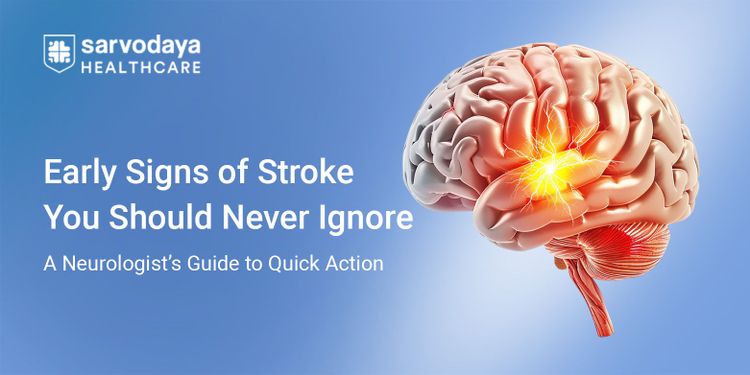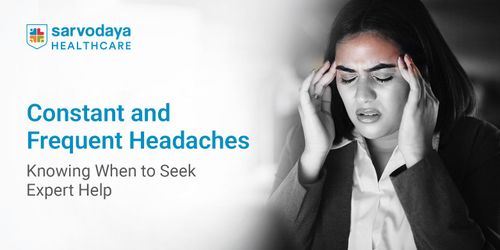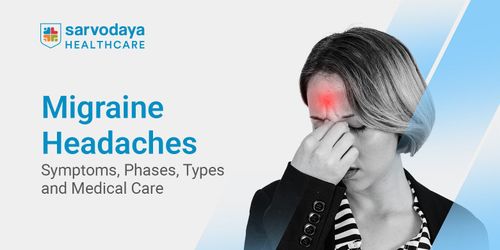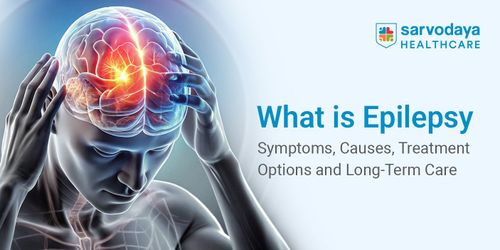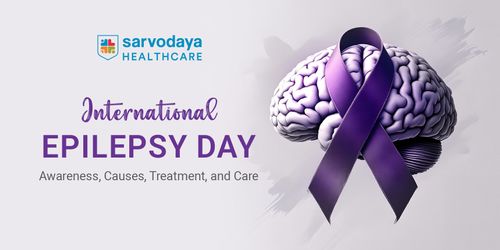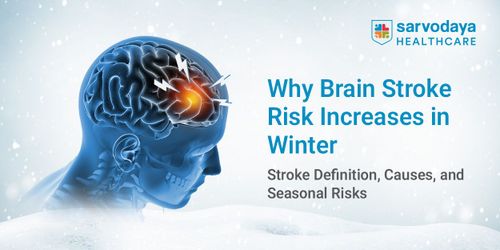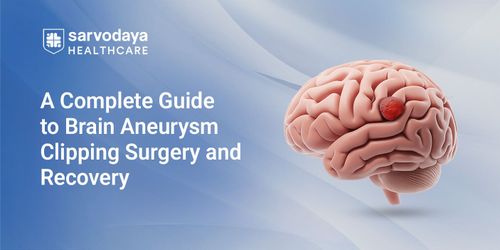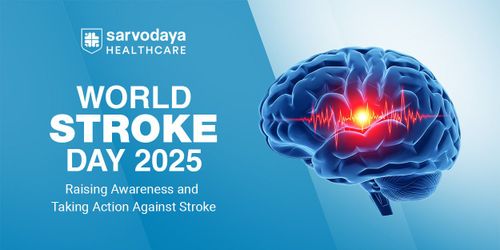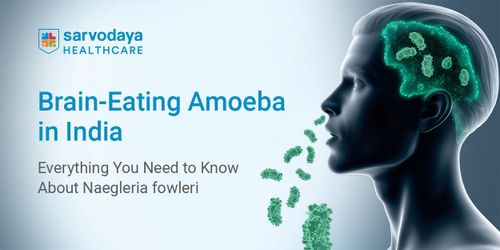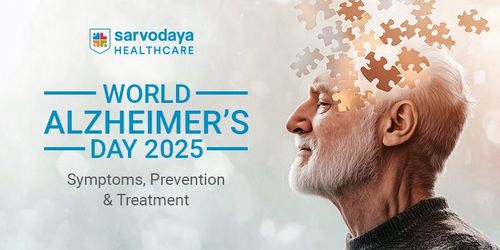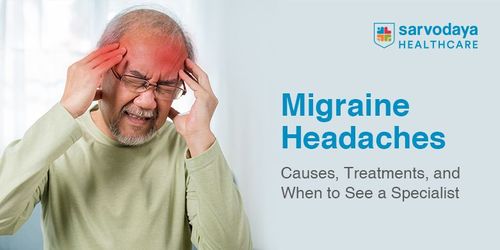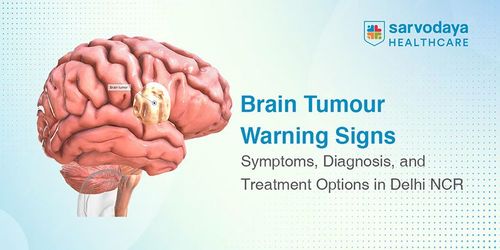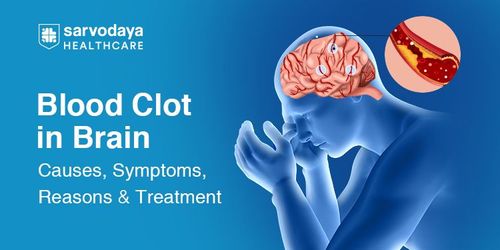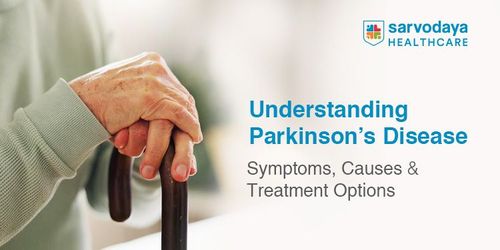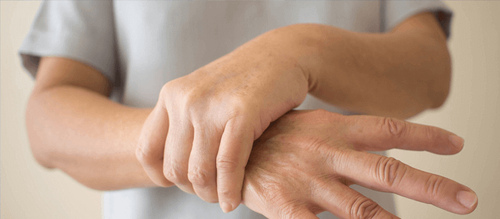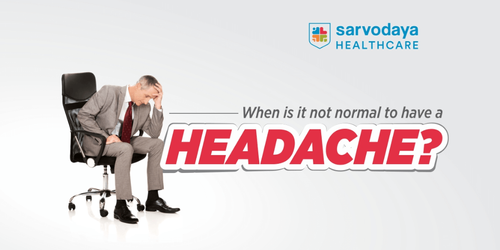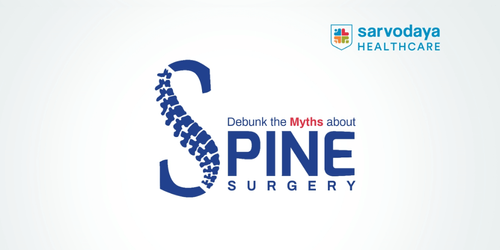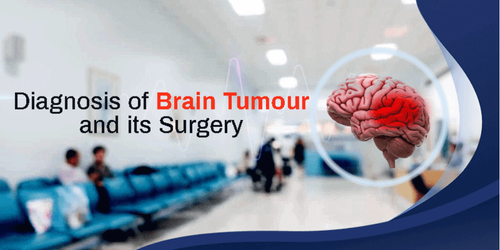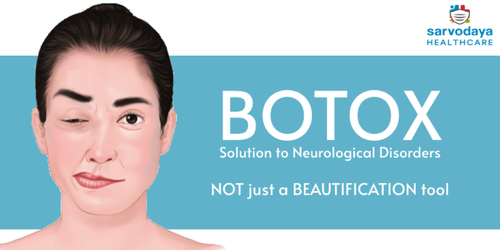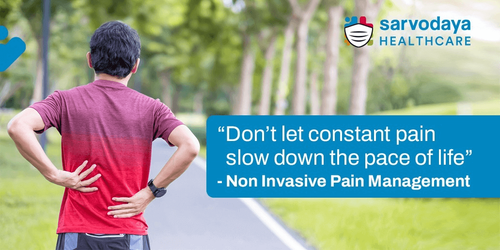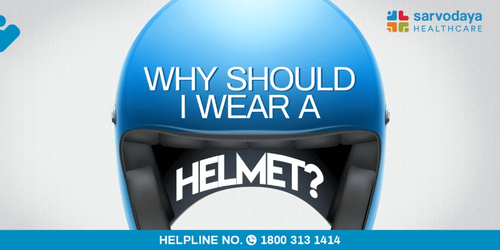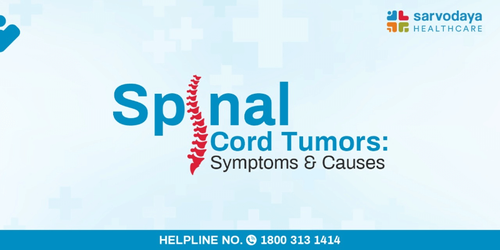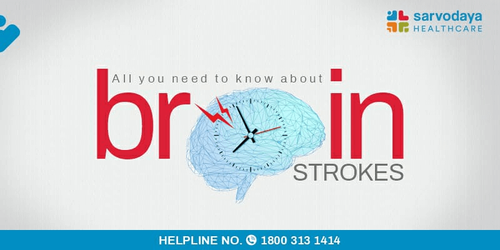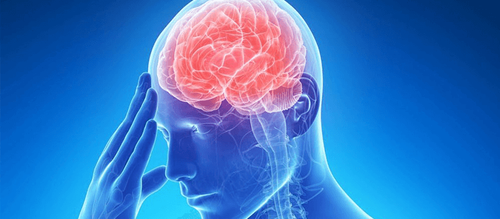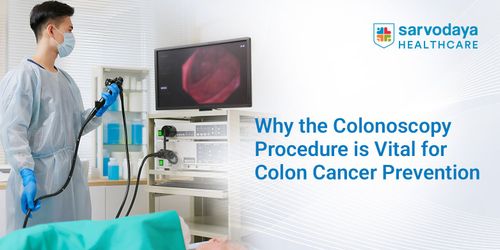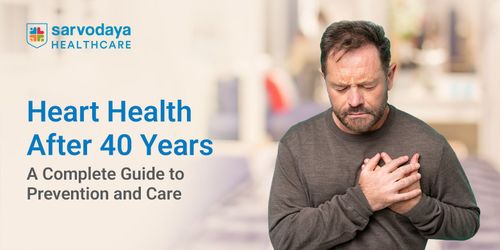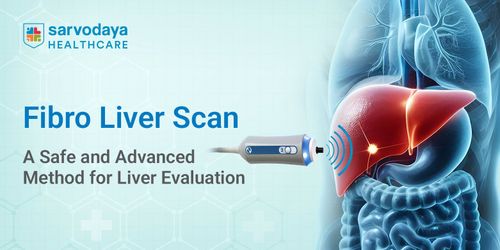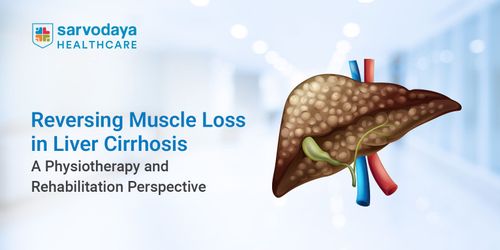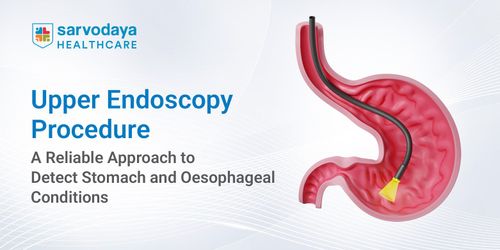A stroke is a serious medical emergency that can change a person’s life within minutes. It occurs when the blood flow to a part of the brain is interrupted or reduced, preventing brain tissue from getting oxygen and nutrients. If not treated quickly, brain cells begin to die, leading to long-term complications or even death.
In this blog, we explore the warning signs of stroke, its causes, and how timely intervention can save lives.
Understanding Stroke
A stroke occurs when the blood supply to the brain is interrupted or reduced, depriving brain cells of oxygen. This leads to damage that affects body functions such as speech, movement, and memory.
There are three main types of stroke:
- Ischaemic Stroke: Caused by a blockage or clot in the arteries that supply blood to the brain.
- Haemorrhagic Stroke: Occurs when a weakened blood vessel ruptures and bleeds into the brain.
- Transient Ischaemic Attack (TIA): Often called a mini-stroke, it is a temporary blockage that does not cause lasting damage but serves as a critical warning sign of future strokes.
Early Signs of Stroke You Should Never Ignore
Recognising the warning signs of stroke early can save a life. The symptoms may appear suddenly and can differ depending on the part of the brain affected. However, most strokes show the key signs that everyone should be aware of. If you or someone around you experiences any of the following symptoms, seek immediate medical help.
Here are the most common signs of stroke; face, arm, speech, and other important indicators:
- Sudden Numbness or Weakness on One Side of the Body: One of the most obvious symptoms of a stroke is weakness or paralysis on one side of the body, typically affecting the face, arm, or leg. This may cause the face to droop or make it difficult to lift an arm.
- Slurred or Unclear Speech: Difficulty in speaking or understanding others is a classic sign of slurred speech in a stroke, often accompanied by confusion or the inability to form proper sentences.
- Loss of Balance and Coordination: Many people experience dizziness, unsteadiness, or difficulty walking correctly after a stroke.
- Severe Headache with No Known Cause: A sudden, intense headache can indicate a haemorrhagic stroke and should never be ignored.
- Blurred or Double Vision: Sudden loss of vision in one or both eyes may also be a sign of stroke.
- Sudden Confusion or Memory Loss: The person may appear dazed, forgetful, or unable to understand simple instructions.
These signs appear quickly, often without any warning. The faster a person receives emergency care from the best neurology hospital in Delhi NCR, the better their chances of full recovery.
Read More - All You Need To Know About Brain Strokes
The FAST Test: A Quick Way to Spot a Stroke
A simple way to remember the main warning signs of a stroke is by using the FAST test for stroke. This simple method helps bystanders act swiftly when a stroke is suspected. Every second counts, and early action can prevent permanent brain damage.
Here’s how the FAST test works:
- F – Face: Ask the person to smile. Notice if one side of the face droops.
- A – Arms: Ask them to raise both arms. Does one arm drift downward or feel weak?
- S – Speech: Ask them to repeat a simple sentence. Is their speech slurred or strange?
- T – Time: If any of the above signs are present, it’s time to call emergency services immediately.
Silent Stroke Symptoms
While most strokes cause noticeable physical symptoms, some occur without noticeable physical symptoms. These are known as silent stroke symptoms, and they can go unnoticed for weeks or even months. A silent stroke happens when blood flow to a small part of the brain is blocked temporarily, causing minor brain cell damage that may not produce clear warning signs.
Common silent stroke symptoms include:
- Subtle memory lapses or confusion
- Difficulty concentrating or performing daily tasks
- Sudden imbalance or unsteady walking
- Slight weakness or numbness in one arm or leg
- Mild changes in speech or vision
Prevention of Stroke
Making consistent lifestyle improvements can significantly reduce your risk of stroke and ensure better long-term brain health.
To prevent stroke:
- Maintain a balanced diet rich in fruits, vegetables, and whole grains.
- Exercise regularly to maintain healthy blood pressure and weight levels.
- Avoid smoking and limit alcohol intake.
- Manage existing conditions, such as diabetes and hypertension, through regular check-ups.
- Receive periodic neurological assessments at a reputable spine hospital in Delhi ncr or other trusted centres.
Read More- Acute Stroke - A Race Against Time
Treatment and Recovery
Immediate medical intervention after a stroke is vital to limit brain damage and improve recovery outcomes. The treatment depends on the type and severity of the stroke but always starts with emergency care.
Treatment options may include:
- Clot-busting Medications: These drugs are used in the case of ischaemic strokes to dissolve blood clots and restore blood flow to the brain.
- Surgical Procedures: In cases of haemorrhagic strokes, surgery may be required to repair ruptured blood vessels or remove pressure caused by bleeding.
- Rehabilitation: Physiotherapy, speech therapy, and occupational therapy help patients regain independence and mobility after a stroke.
- Lifestyle Modification: Managing diet, controlling blood pressure, and exercising regularly can prevent another stroke.
Conclusion
A stroke is not just a medical emergency but a wake-up call to prioritise brain health through preventive check-ups and healthy living. Early diagnosis and treatment by the best neurologist in Noida can prevent severe complications and promote better recovery outcomes.
At Sarvodaya Hospital, Faridabad, advanced neurocare services are available for both preventive and emergency stroke management. The hospital is equipped with state-of-the-art diagnostic technology, experienced specialists, and dedicated rehabilitation units. Whether you are experiencing silent stroke symptoms or have risk factors such as high blood pressure, a preventive consultation with the best neuro physician in Faridabad can help you take control of your health before complications arise.
If you or a loved one has shown any warning signs of stroke, do not delay – book an appointment now to get expert evaluation and guidance from leading neurologists in Faridabad.


